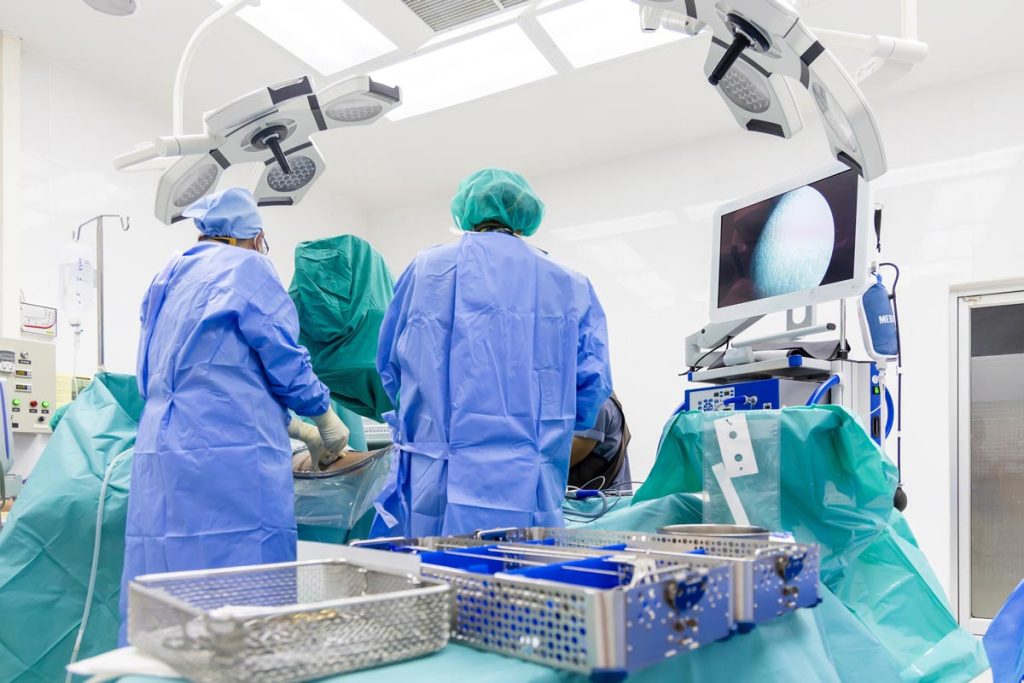Are You a Candidate for Minimally Invasive Spine Surgery?
- Desert Spine & Scoliosis Center

- Jan 29, 2025
- 3 min read
Updated: Jun 26, 2025

There are many types of minimally invasive spine surgery (MISS for short). But regardless of the type, what they all have in common is that they are a lot less involved than other more “traditional” forms of spine surgery, such as a spine fusion.
That being said, not everyone is a good candidate for minimally invasive spine surgery.
So, if you’re wondering whether you currently qualify for this highly successful type of spine surgery, we’ve got the details you need to answer your questions!
What Are the Benefits of Minimally Invasive Spine Surgery?
At its most basic level, minimally invasive spine surgery is a type of spine surgery that requires a much less invasive approach (hence the name) when compared to other surgical approaches.
Each type of MISS differs, but on a general level, there are many benefits of MISS compared to other types of surgery such as a spinal fusion. Some of the key benefits include:
Smaller incisions
Less post-surgical pain and reduced reliance on pain medications
Less blood loss
Zero muscle cutting
A significantly lower risk of anesthesia-related complications
Faster recovery times
A decreased risk of infection
How Does Spine Surgery That’s Minimally Invasive Differ From Other Types of Spine Surgery?
As we explain in our informational page about MISS, “With traditional spine surgery, the back must be opened up and the muscles cut or dissected in order to access the spine, creating a significant amount of soft tissue damage..”
But, on the other hand “minimally-invasive spine surgeries protect muscles and sensitive body structures while still providing the spine surgeon access to the spinal canal”.
Am I A Good Candidate For MISS?

It’s smart that you are asking yourself this question!
To be clear, evaluating your candidacy for any type of surgery, MISS included, is a process that you should not enter into lightly. (This is why at Desert Spine and Scoliosis Center, Dr. Baig makes sure to evaluate each patient’s candidacy for surgery on a case-by-case basis).
That having been said, you should know that all MISS surgery candidates are traditional surgery candidates, but not all spine surgeons know how to do MISS. If your condition isn’t treatable with nonsurgical methods, MISS could just be the cure you’ve been hoping for. But be sure to choose your surgeon carefully!
Here are just some of the conditions are ideal for treatment by MISS:
All age ranges
Those with spinal stenosis caused by a herniated disc
Osteophytes (bony overgrowths)
Pain from degenerative disc disease
Spinal instabilities such as spondylolisthesis or anteriorlisthesis
In some cases, those with spinal deformities
Who Is Not A Candidate for MISS?
There are several categories of people who, even if they suffer from the above back and spine conditions, still may not be good candidates for minimally invasive spine surgery.
Those Who Are Significantly Overweight
There are a myriad of reasons that individuals may carry extra weight. But if you are significantly overweight or morbidly obese, it is possible that could cause issues with your anesthesia, recovery, or surgery itself. Although losing weight isn’t always easy, it is usually a controllable factor. If weight is the only factor stopping you from qualifying from MISS, the solution for qualifying is simple: talk to your doctor about ways to lose weight to prepare yourself for surgery.
Those Who Need a Spinal Deformity Correction Surgery
This type of surgery, which is often performed for cases of scoliosis where the curvature of the spine must be straightened, cannot be done endoscopically.
Discuss Your Candidacy for Surgery Today with Dr. Rafath Baig
At Desert Spine and Scoliosis Center, we are experts in various types of rehabilitative orthopedic spine surgery, including fusion, injections, discectomy, minimally invasive spine surgery Including endoscopic spine surgery), fusion, and more.
Whether you’re struggling with back pain or nerve related pain caused by degenerative disc disease, spinal stenosis, a herniated disc, or something else, we can help you get to the bottom of why you are feeling the way that you are and, perhaps even more impactfully, how we can help you make it right to improve your quality of life once and for all.
We know how frustrating, defeating, and debilitating back pain and nerve pain can be. Thankfully, we are here to help, with locations in Mesa, Scottsdale, and West Valley, Arizona.
Give us a call at one of our locations or contact us online now to start your journey towards better back and spine health.
_PNG.png)



Comments